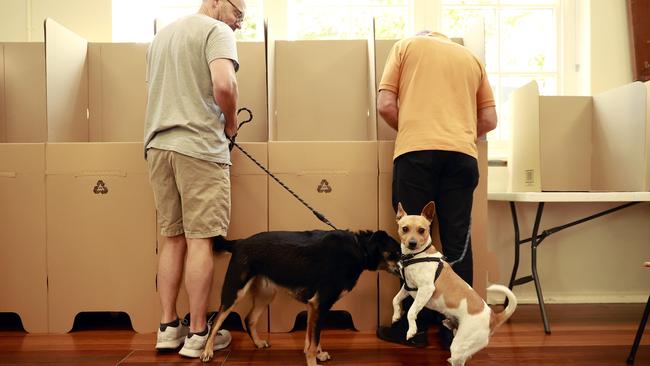Voters ‘willing to trade away democratic values for policy wins’
Australian are willing to trade away leaders who respect democratic institutions in favour of policy outcomes they agree with.

Australian are willing to trade away leaders who respect democratic institutions in favour of policy outcomes they agree with, a new study finds.
An Australian National University study polled about 2500 Australians and found that people were more likely than not to vote for a hypothetical “dictator” – defined as an uncompromising person who did not respect the Constitution, courts, parliament, or elections – if that leader and the voter agreed on four policy positions the survey asked.
That survey gave respondents a choice between two theoretical leaders and stated their positions on democratic institutions: a willing to compromise with other political parties; respect for the Constitution and courts; and the authority of parliament; and the outcome of future elections. It also stated their positions on four policy areas – the minimum wage, migration, opening of new coal mines, and euthanasia.
Based on those surveys, the researchers modelled how different traits were likely to affect behaviour at the ballot box and suggested that more than 50 per cent of Australians were willing to vote for an “illiberal” leader – who respects the authority of parliament and future elections but not that of courts or the Constitution – as long as that leader agreed with the voter on three of those four policy issues.
The study, published in the Australian Journal of Political Science, found this held true across broad demographic groups. However, it found young people and university-educated voters were least hesitant about sacrificing leaders’ democratic values over their favoured policy outcomes.
The study found similar results for British voters.
“We find evidence that while democratic considerations matter for how voters evaluate leaders, for each type of leader, there comes a point at which voters are, on average, willing to hold their noses and vote for them if they get their desired policy outcomes,” authors Annika Werner and Feodor Snagovsky wrote.
They said that in general, policy congruence appeared to matter more to voters than democratic values.
“Our results show that when voters agree with a hypothetical proto-dictator on all the issues we presented them with, they are more likely than not to choose them over their competitor – whatever that competitor’s democratic style,” they wrote.
“These findings are troubling because they demonstrate that many citizens are potentially ready to trade away basic democratic principles not only in the context of a crisis but also for purely self-interested policy reasons.”





